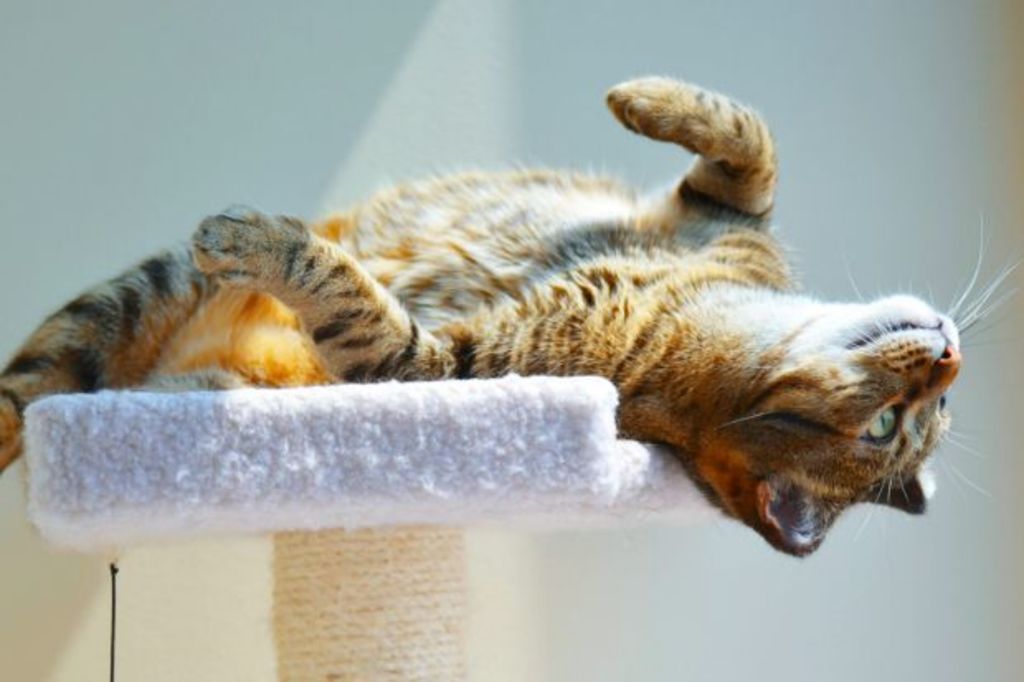How to keep pets happy and healthy in an apartment

As a country with one of the highest pet ownership rates in the world (63 per cent according to the RSPCA), the increase in high-density living poses a huge impact to Australia’s household pet culture.
However, even with our smaller home environments, pet experts say it is absolutely possible for dogs and cats to experience happy and healthy lives given the right knowledge and care.
“Pets are good for people and, providing we are looking after the needs of our pet, people should be able to keep a pet in their chosen accommodation,” says animal behaviour consultant Dr Jo Righetti.
To ensure your pets are being cared for and enthused in a small home, observe the following expert advice.
Choose an appropriate breed
Most cats and dogs are capable of being kept indoors provided they receive the exercise and interaction required of their breed.
With that in mind, prospective pet owners should firstly research what species, breed and personality best suits their lifestyle. Petbarn’s Dog Breed Selector is a handy online tool that matches your needs with a dog that is perfect for your lifestyle.
“The commitment of the owner to their pet is more important than the breed,” Dr Righetti says.
“An owner who is committed to providing adequate physical exercise and mental stimulation could have a border collie, Jack Russell terrier or Bengal cat (which are all generally very active breeds) in a small space.”
As well as living in smaller houses, many city-dwellers have busy lives that limit their time spent at home.
Chief veterinary officer at Greencross Limited, Dr Rachel Chay says working dog breeds in particular may struggle with apartment living as they require frequent outdoor exercise with their owner.
“Greyhounds are well known ‘couch potatoes’ that, despite being a larger dog, may be very content in an apartment,” Dr Chay says.
“Apartment dwellers must consider their body corporate rules around the size of pets allowed. Sometimes this is restricted to animals under 10 kilograms.”
Keep pets entertained with toys
There are numerous toys designed to keep indoor pets entertained while their owners are away.
“Since most dogs are food motivated, food-releasing toys are great occupiers,” says Dr Righetti.
“Instead of feeding your dog in a food bowl, put their kibble in a food-releasing toy and let them work for it.”
Flavoured toys such as the Tasty Bone are another option for satisfying dogs’ chewing and dental needs.
“Dogs regard toys as new when they have not seen them for five days, so rotating toys around helps keep pets amused,” Dr Righetti says.
For cats, a scratcher will not only keep them engaged, but also encourage them to keep off the furniture.
“There are a great range of toys available that include laser pointers and feathers that appeal to cats’ innate desire to hunt,” Dr Chay says.
Provide access to nature
While it may not be possible to let your pets outside when they are home alone, it is vital they have access to fresh air, shade, natural light and fresh water.
Providing safe and secure entry to balconies or courtyards can be beneficial but is not essential.
“There are a number of great ways to secure a balcony using cat netting which still look great but remove the worry,” Dr Chay says.
Non-toxic indoor plants can also help improve air quality to benefit both pets and their owners.
Enable daily exercise and interaction
Dogs in particular need to be taken outside daily for physical exercise and mental stimulation via sniffing.
“Cats require less access to outdoor areas than dogs and in Australia we encourage cat owners to keep their cats at home,” Dr Righetti says.
“Cats tend to prefer short bursts of exercise so there is no need to allocate an hour at a time. Five minutes at numerous times throughout the day will keep most cats very happy.”
By keeping your pets exercised and inspired while you’re at home, they will be more inclined to snooze when left alone. The result is a cleaner home, happier neighbours and overall healthier pets.
We recommend
We thought you might like
States
Capital Cities
Capital Cities - Rentals
Popular Areas
Allhomes
More







